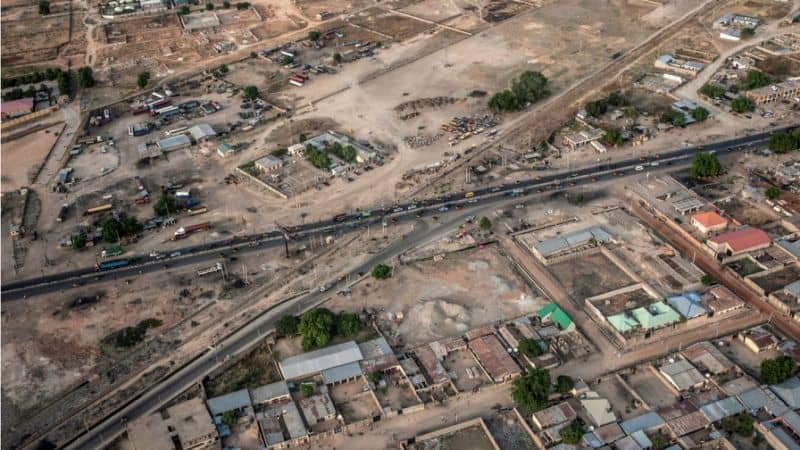
Nigeria: Dozens killed in Boko Haram triple suicide bombing in Konduga
A triple suicide bombing by Boko Haram killed 30 people in the northeastern Nigerian town of Konduga, emergency services said.
“The death toll from the attack has so far increased to 30. We have over 40 people injured,” Usman Kachalla, head of operations at the State Emergency Management Agency, said on Monday, June 17, raising the tally from 17 dead and 17 wounded.
Three bombers detonated their explosives outside a hall in Konduga, 38 km (24 miles) southeast of the Borno state capital Maiduguri, where football fans were watching a match on TV.
The attack happened around 9 p.m. (1800 GMT), Ali Hassan, the leader of a self-defense group in the town, said.
The owner of hall prevented one of the bombers from entering the packed venue.
“There was a heated argument between the operator and the bomber who blew himself up,” Hassan said by phone.
Two other bombers who had mingled among the crowd at a tea stall nearby also detonated their suicide vests.
Hassan said most of the victims were from outside the football viewing center.
“Nine people died on the spot, including the operator, and 48 were injured,” Hassan said.
Kachala said the high number of fatalities was because emergency responders had been unable to reach the site of the blast quickly.
Nor were they equipped to deal with large numbers of wounded.
“Lack of an appropriate health facility to handle such huge emergency situation and the delay in obtaining security clearance to enable us deploy from Maiduguri in good time led to the high death toll,” he said.
The jihadist group known as Boko Haram began its bloody insurgency in northeastern Nigeria in 2009, but it has since spread into neighboring Niger, Chad and Cameroon, prompting a regional military response.
More than 27,000 people have been killed and two million others displaced, sparking a dire humanitarian crisis in the region. On April 30, the U.S. Ambassador-at-Large and Coordinator for Counterterrorism Nathan A. Sales said that the U.S. assesses that Boko Haram and ISWAP “have been responsible for over 35,000 deaths since 2011.”
Boko Haram split into two factions in mid-2016. One, led by long-time leader Abubakar Shekau, is notorious for suicide bombings and indiscriminate killings of civilians. Shekau pledged allegiance to ISIS leader Abu Bakr Al-Baghdadi in March 2015, but ISIS central only gives formal backing to the other faction, which it calls Islamic State West Africa Province.
The ISWAP faction, which largely focuses on attacking military and government targets, was led by Abu Mus’ab Al-Barnawi, but in March, audio recordings revealed that ISIS appointed Abu Abdullah Idris bin Umar, also known as Ibn Umar al-Barnawi, as leader. ISIS has not yet made a public statement confirming the change.
Neither faction has claimed responsibility for Sunday’s attack.
Boko Haram has targeted Konduga in the past, including a February 2018 triple suicide bombing at a fish market that killed at least 18 people. In July, a suicide bomber detonated his explosives in a mosque in Konduga, killing eight worshippers.
In September, a Boko Haram faction raided Amarwa, a town in Konduga district, along with another nearby village. The fighters fired indiscriminately at residents fleeing their homes, a local militia leader said at the time.
Earlier this year the Nigerian military evacuated residents of Jakana village in Konduga ahead of a planned offensive against the Islamic State faction of Boko Haram.





